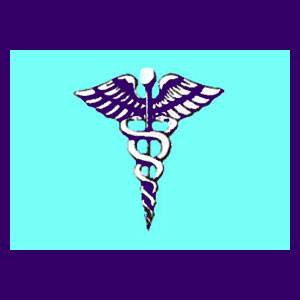
Colitis is a severely limiting gastrointestinal problem also commonly called inflammatory bowel disease or IBD. This intestinal condition can become a major health concern for a minority of affected individuals and may even require surgical intervention to resolve. However, patients are strictly warned to exhaust all conservative care practices before even considering surgical fixes. Patients are further cautioned to learn the possible side effects of many of the strong prescription medications given to them for ongoing symptomatic control.
The true nature of this bowel condition is often rather mysterious, possibly coming from an anatomical source or a psychoemotional causation. It is obvious that medical therapies leave much to be desired for colitis sufferers, since most do not recover, despite their doctor’s best efforts. Some patients actually end up with dire health issues, regardless of a lifetime spent in professional treatment.
This discussion details the mindbody connection in colitis patients and how the condition can be permanently resolved using holistic therapies.
Inflammatory Bowel Disease Symptoms
IBD is characterized by a wide range of potential symptomatic expressions that might vary from patient to patient:
Pain in the lower abdomen and general abdominal sensitivity are almost always present.
Blood in the feces or from the rectum is typical, since ulcers are often found on the lining of the colon in affected patients.
Unusual bathroom habits, such as increased frequency of defecation, are also commonly experienced.
Some patients are affected by any of the following additional symptoms: recurrent fever, diarrhea, constipation, bloating, acid reflux, indigestion and GERD.
Life for people with IBD is an unpredictable and uncomfortable series of acute attacks or chronic day to day symptoms. These symptoms are socially and professionally limiting, so it is no wonder so many patients also suffer the signs of other potential mindbody syndromes, including depression and anxiety.
Colitis Treatments
Inflammatory bowel disease is generally managed using a combination of dietetic modification (including reduction of carbohydrates, caffeine, sugars, dairy products and spicy food items) and pharmaceutical drugs. Most patients will see some improvement of their issues using these symptomatic modalities, but few will enjoy complete amelioration of the disorder.
A few unlucky souls will not respond to conservative care and will be forced into surgical interventions to treat their drastic IBD. This is particularly prevalent in patients with severe bleeding ulcers which may prove to be significant health risks unto themselves.
Most of these people will have their large intestine removed and many will still suffer from symptoms postoperatively. As with many operative procedures, IBD surgeries are not the best course of action, but are still a popular treatment modality.
Colitis Help
Many care practitioners view inflammatory bowel disease as yet another psychologically induced pain syndrome. This particular form of PIPS might indicate highly sensitive and emotionally charged issues hidden deeply in the subconscious, since the symptomatic expression can be extreme.
Many affected patients have found lasting relief using knowledge therapy techniques, without the considerable costs and risks associated with long-term drug use or bowel surgery. Of course, there is little to risk by at least giving this approach a try, since there is nothing at all to lose and a permanent and effective cure to potentially gain.
Back Pain > Psychologically Induced Pain Syndromes > Colitis




